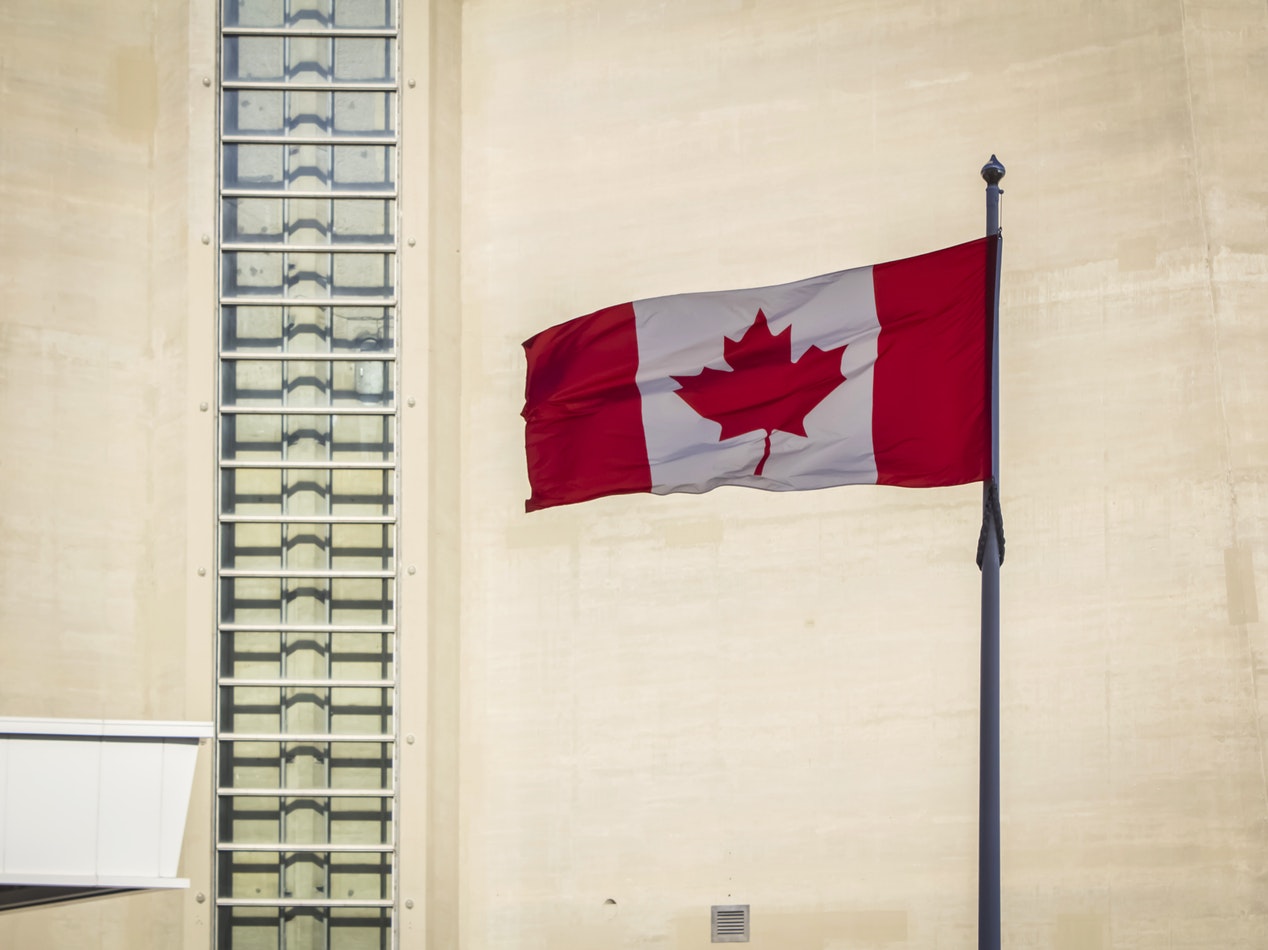New Policy Allows Foreign Nationals To Apply For Work Permits Without Leaving Canada
IRCC Refines Eligibility Requirements For Employer-Specific Work Permit Policy
One month after it was formally announced, detailed information regarding the eligibility requirements for a new temporary policy benefiting temporary residents with job offers has been revealed by Immigration, Refugees And Citizenship Canada (IRCC).
The policy, which was announced back in August, allows foreign nationals that have valid immigration status and meet the eligibility requirements to apply for a job offer-supported work permit from inside Canada.
The policy also ensures that qualifying foreign nationals will not be denied a work permit, as long as they comply with certain temporary residence conditions. An additional benefit is that temporary foreign workers may also be allowed to work while their work permit decision is still pending.
Prior to this policy being adopted, foreign nationals were required to leave Canada and come back in order to “activate” their visa. However, due to COVID-19 travel restrictions put in place back in March, the practice has since stopped.
According to CIC News, Canada’s immigration minister, Marco Mendicino previously said that the new measure will be beneficial to temporary foreign workers and Canadian employers as it gives them the opportunity to skip this step while travel restrictions are in place.
“We have heard from employers who continue to face challenges recruiting and hiring the workers they need during the pandemic,” Mendicino stated in a press release. “This exemption from the normal temporary work permit requirements is aimed at removing barriers to create a more agile workforce that leverages visitors with the skills and experience to accelerate our economic recovery.”
Eligibility Requirements
The main requirement for foreign nationals looking to apply for an employer-specific work permit without leaving the country is that they must obtain legal visitor status in Canada. This can also include having implied status.
The expiry date of the period of authorized stay will be considered the decision date on the submitted application by IRCC officers.
Temporary foreign workers who have changed their status to “visitor” will also be able to work if they can meet the following eligibility requirements:
- Hold a valid temporary resident status as a visitor and be physically present in Canada since August 24, 2020
- Held a valid work permit in the past 12 months prior to the date their work permit was submitted under the new policy
- The intention to work for the employer and the occupation specified by the LMIA or LMIA-exempt offer of employment included in their work permit application submitted under the new policy
- Applied to the IRCC for the interim approval to start working using the IRCC webform
- Requested that their authorization to work be applicable until a decision is made on their work permit application
For more information regarding the temporary policy, consult with the IRCC website.
Spousal Sponsorship Permanent Residency Applications: Best Practices
Eligibility Requirements For Spousal Sponsorship In Canada
In order to apply for sponsorship, you must meet a number of eligibility requirements, including being either married, in a common law relationship, or in a conjugal relationship. Both the sponsor and applicant must also be over the age of 18, and the sponsor must be either a Canadian citizen, or permanent resident of Canada residing in Canada.
Furthermore, the sponsor must show that they can provide for the applicant’s basic needs in Canada and sign an undertaking which makes them responsible for three years from when the applicant lands as a permanent resident in Canada. The applicant should not be inadmissible to Canada, weather it’s for criminality or medical reasons. Your relationship must also be genuine and not entered into for immigration purposes.
If you do not meet the requirements of the program, you may still have options. To understand what options are available to you, it is advisable for you to consult an immigration lawyer at Gerami Law PC regarding your options.
With that being said, we will explain the spousal sponsorship process in further detail so you are prepared prior to your meeting with an immigration lawyer.
Eligibility For Open Work Permit
If you are applying from within Canada, you may be able to apply for a work permit along with your spousal sponsorship application. This would allow you to work in Canada while you await a decision on your permanent residence application. If granted, the work permit would give you temporary status in Canada as well. You generally must meet certain eligibility requirements, including living in Canada with your sponsor, and having valid status in Canada at the time the application is submitted.
Preparing An Application
When preparing your spousal sponsorship application, you will need the following:
Forms
There are a number of forms required for a spousal sponsorship application. Ensure that you have filled these in accurately. If you have retained a lawyer at Gerami Law PC, our lawyer will review the forms to ensure that they are filled in properly.
Supporting Documents
You must include all required documents or your application may be sent back. Immigration, Refugees and Citizenship Canada (IRCC) provides a document checklist outlining which documents are required, including identity documents, financial documents, proof of cohabitation (if applicable), and proof of your relationship. The documents required vary based on your specific circumstances.
Even if not required in your case, you may wish to include additional proof of the genuineness of your relationship such as letters of support from friends and family, photos of you together, and text messages to one another. As with any application to IRCC, any document not in English or French must be accompanied by an official translation.
Please note that certain documents may take longer to obtain, such as police certificates from foreign governments, Notices of Assessment from CRA, official translations of documents, and your marriage certificate. You may wish to apply for these early on so that your application is not delayed while you wait for these documents.
Statutory Declaration
You may also wish to include a written statement or statutory declaration (or affidavit) explaining the development of your relationship, including details about how you met, your engagement, and your wedding (if applicable). The statutory declaration can also address your plans for the future, as well as how the sponsor intends on supporting the applicant during the length of the undertaking. A statutory declaration can provide additional context and background to the information contained in your forms and documents.
Legal Submissions
If you are represented by one of our lawyers at Gerami Law PC, your lawyer will prepare legal submissions outlining how your application meets the requirements of the program and addressing any issues they may foresee.
Interviews
Upon reviewing your application, you may be called in for an interview by an IRCC immigration officer where you will be asked questions about your relationship. The purpose of such an interview is to establish the genuineness of your relationship and whether or not it was entered into for immigration purposes. If you are called in for such an interview, your lawyer will want to meet with you beforehand to prepare.
Sponsorship Refusal
If your sponsorship application has been refused, you may have the option to appeal the decision to the Immigration Appeal Division or to the Federal Court. Your options depend on the type of application (in-Canada versus Family Class).
You may also wish to submit a new application for sponsorship. It is also advisable to consult a lawyer who can provide advice on your options along with the strength of a potential appeal.
When Should I See A Lawyer?
An initial consultation is a great opportunity to learn more about the sponsorship process along with your options. It is never too early to consult a lawyer about spousal sponsorship, and at Gerami Law PC, we often consult with individuals who are not yet married or in a common law relationship with their significant other, but are looking to plan ahead.
Consulting with a Canada immigration lawyer is a great way to learn if there are any eligibility or inadmissibility concerns, or any other issues that may need to be addressed in the application. The lawyer can also answer related questions, if applicable, such as maintaining your status in Canada while waiting for a decision on your application.
If you choose to retain a lawyer to represent you on your application, your lawyer will guide you through the application process and will be responsible for preparing and submitting the application in collaboration with you.
Your lawyer will also:
- Review your application forms to ensure that they are complete and accurate
- Advise on the documents to include with your application and review your documents
- Draft a statutory declaration on your behalf describing the background and development of your relationship
- Prepare legal submissions outlining how your application meets the requirements of the program
- Compile and submit your application to IRCC
- Correspond with IRCC thereafter
COVID-19-Related Measures
Although some IRCC offices have been temporarily closed due to COVID-19, IRCC continues to accept applications for permanent residence. Therefore, those looking to apply for spousal sponsorship are able to do so by submitting the application by mail to the relevant IRCC office.
Required Documents
IRCC currently has policies in place to provide applicants with accommodations during the coronavirus pandemic. One such policy states that if there are any required documents which you are unable to obtain due to coronavirus-related closures, applications can be submitted without those documents as long as a letter of explanation is included. The required documents must still be submitted later on once the applicant is able to obtain them.
Due to closures relating to COVID-19, applicants may face delays in applying for police certificates from foreign governments, obtaining passport-sized photos, or obtaining other required documents. The above policy allows applicants to submit their applications in a timely manner despite these delays.
Citizenship Guide Delays are New Political Lightning Rod
New Canadian Citizenship Guide Stalled (Again) by Federal Government
The Federal Government has come under fire recently following the delay of the rewrite of a new Canadian Citizenship Guide. The Guide, which was intended to launch over year ago, has led to accusations from some critics over the government’s apparent heel-dragging as they prepare a more modern, inclusive version of the Guide.
Of course, this is simply the most recent delay in the introduction of the new Guide, which was announced in 2016. Back then, Ministry of Immigration, Citizenship and Refugees officials had hoped to launch the new guide to coincide with Canada 150 celebrations in 2017. This would also have marked the 70th anniversary of Canada’s Citizenship Act.
However, in late 2017, a draft copy of the revised Guide was leaked to the press and politicians alike. This draft had removed the references to “barbaric cultural practices.” A Conservative law, called Bill S-7 when it went through Parliament, sought to address the issue of forced marriage in a few ways, including by adding polygamy as a reason to deny someone’s admission to Canada, by setting 16 as the minimum age for marriage and by creating new offences related to forced and underage marriage.
When the Harper government added these sections, some saw it as a backhanded insult to immigrants from the Middle East. Some people believed this was unfairly stereotyping Middle Easterners, creating a wedge issue and polarizing the public.
By comparison, the leaked draft copy from 2017 includes several new references to historical injustices against Canada’s Indigenous population, Japanese internment prisoners during World War 2, as well as references to the Truth and Reconciliation Commission and the history of residential schools in Canada.
All the same, there remains no new launch date for the release of the newly revised version.
“We have undertaken vast consultations with numerous stakeholders, a process that had not been undertaken under previous iterations of the citizenship guide,” said Mathieu Genest, press secretary for Immigration Minister Ahmed Hussen, speaking to the Globe and Mail.
“We want to make sure that new Canadians learn about our laws and our history, including as it relates to groups that are not well represented in the current guide.”
Other changes deal more specifically with the rights of certain marginalized people in Canada, including historical references to injustices against Jews, LGBTQ individuals, and other groups.
Some opposition members believe the guide is being transformed into a mea culpa for Canadian sins, rather than a document meant to make newcomers excited to be part of Canada’s multicultural fold. The government has commented that delays are the result of consultations and discussions with experts and stakeholders, all in an attempt to “take the politics out of the guide.”
It remains to be seen when this revised guide will be released, and what its contents will include. Despite the furor caused by the apparent removal of the barbaric cultural practices section, the guide has expanded greatly on other topics, a fact apparently forgotten by some critics.



